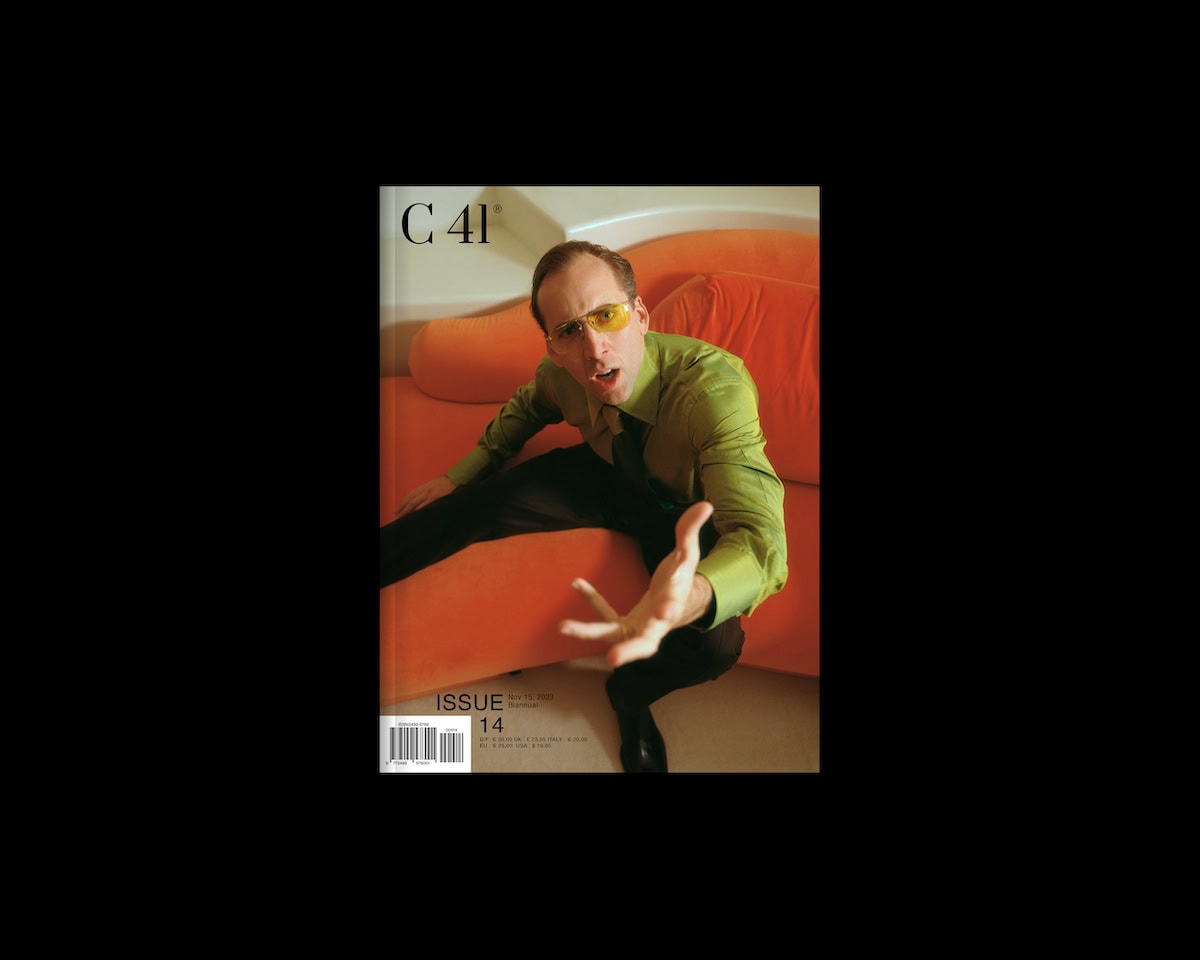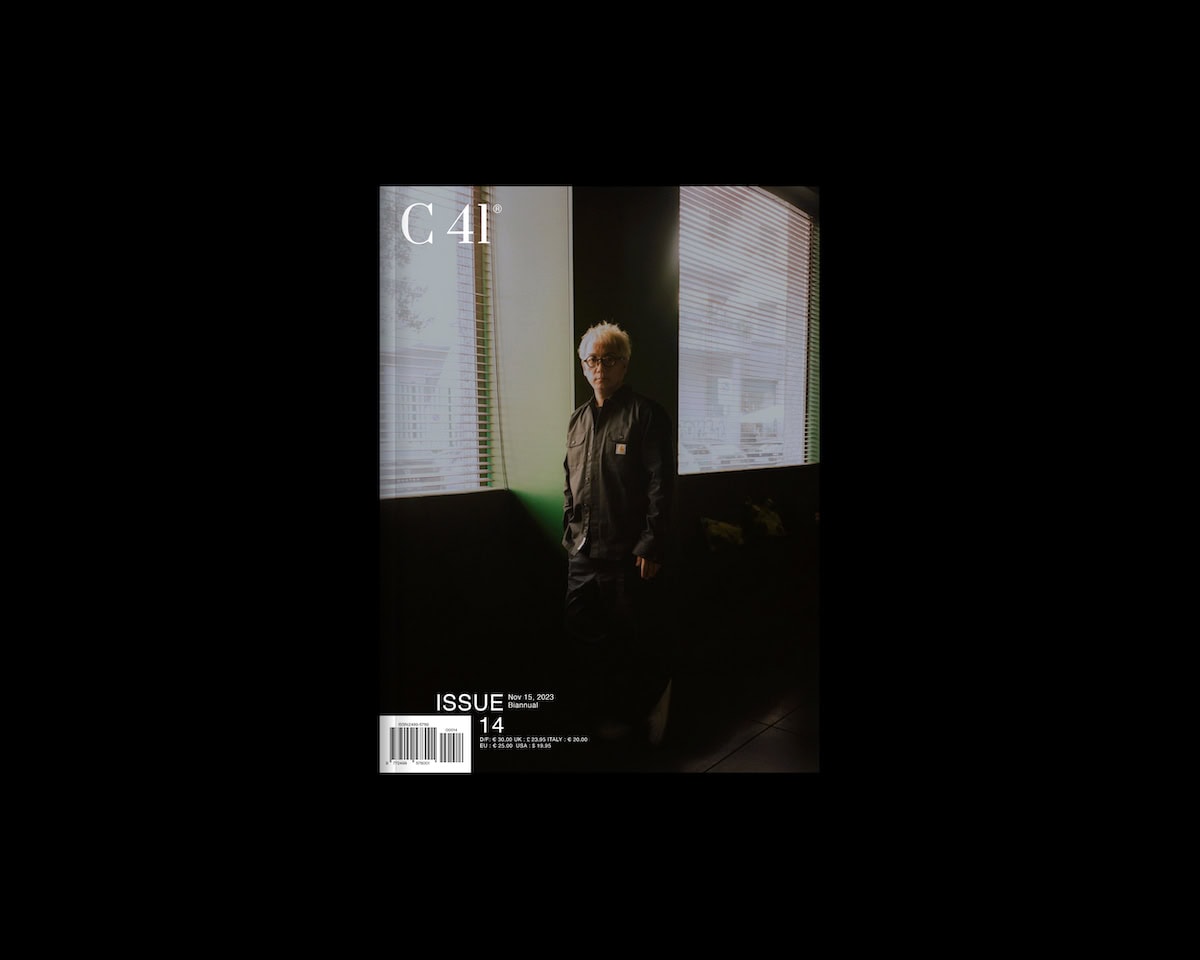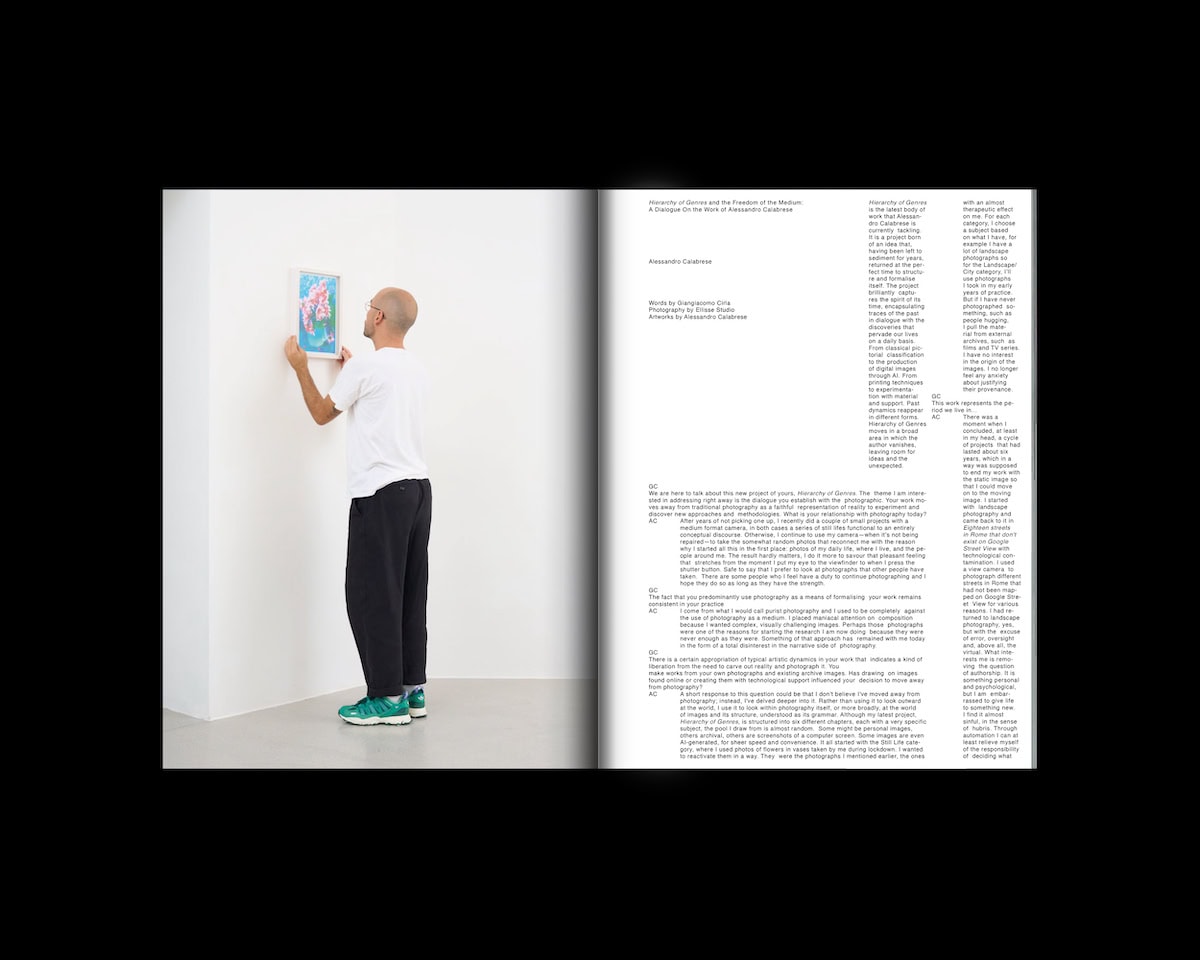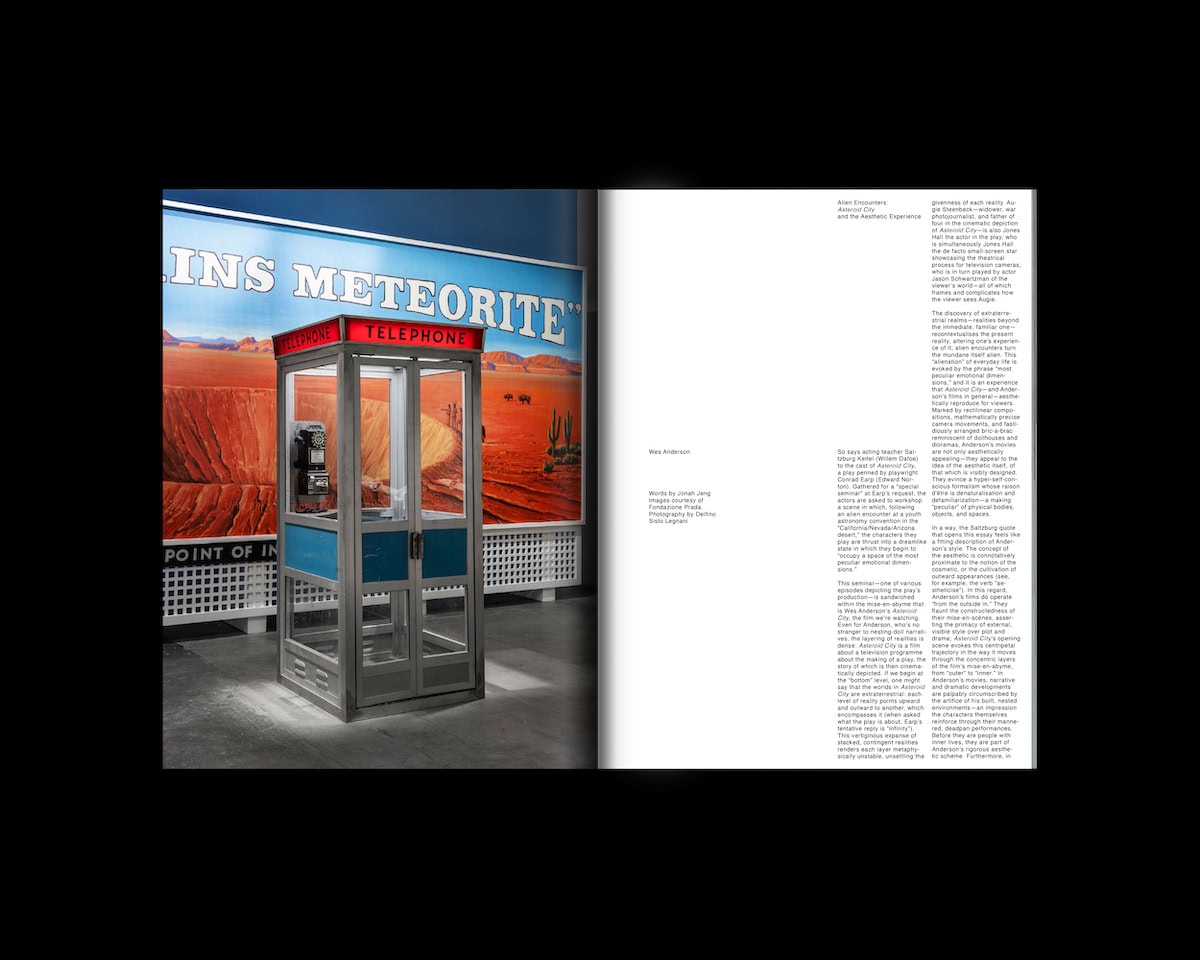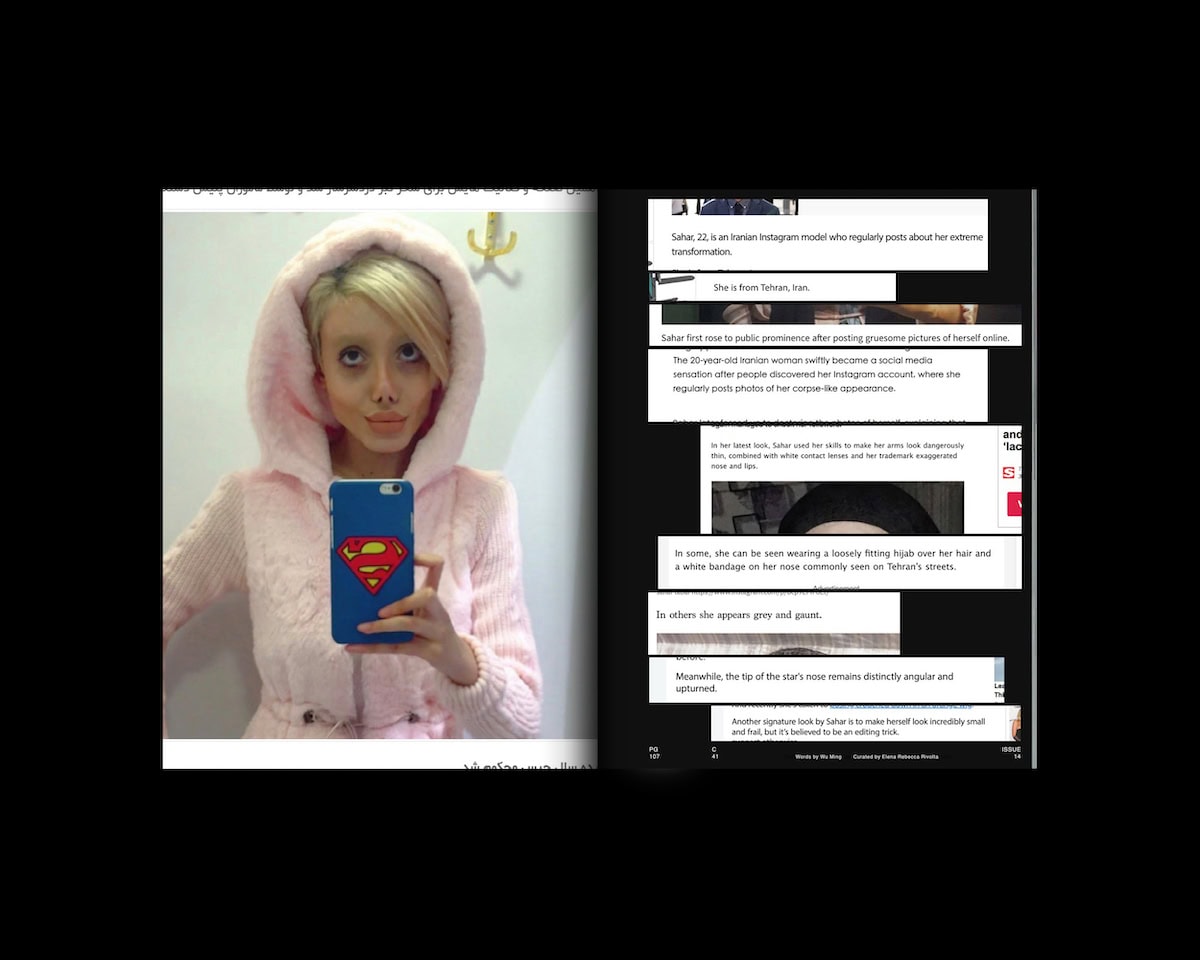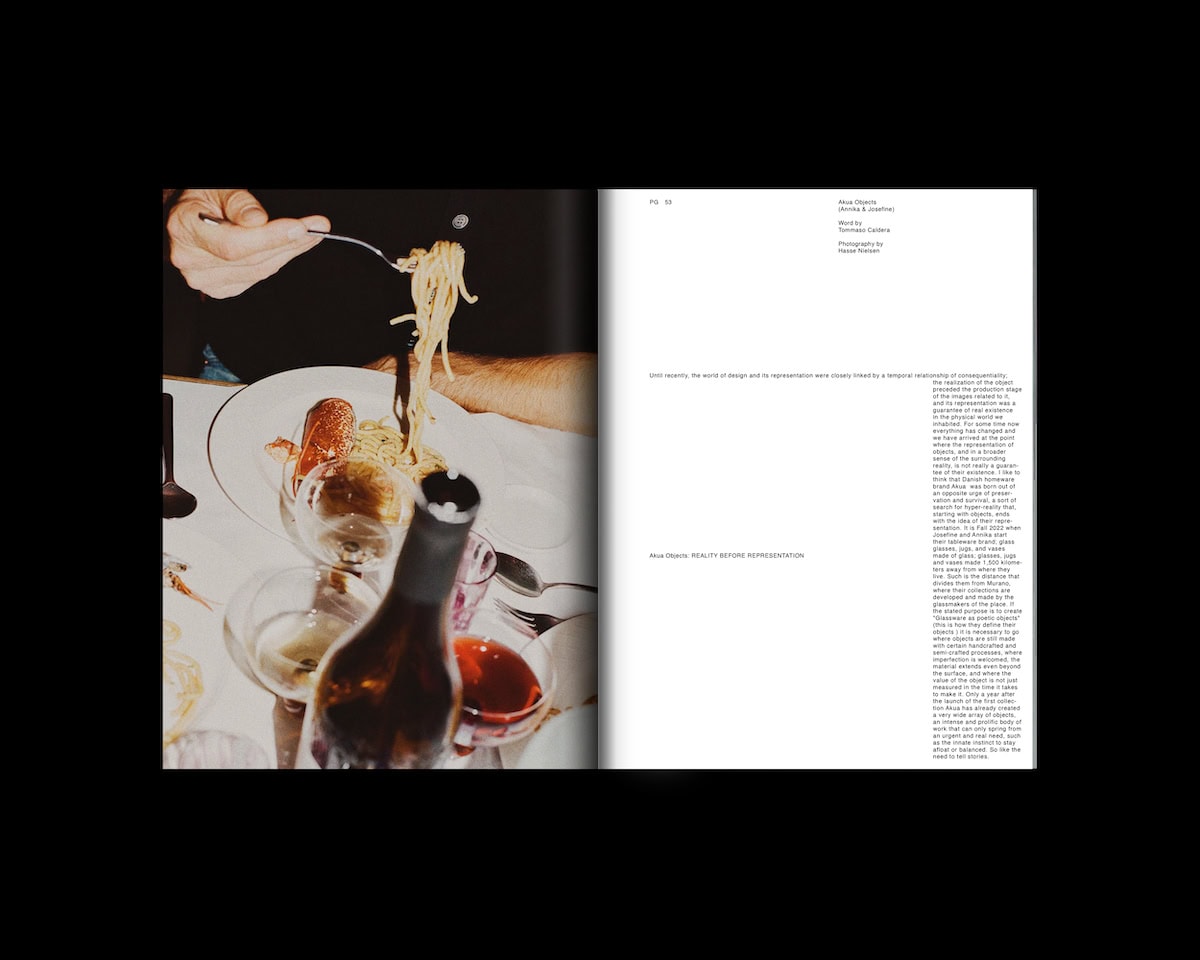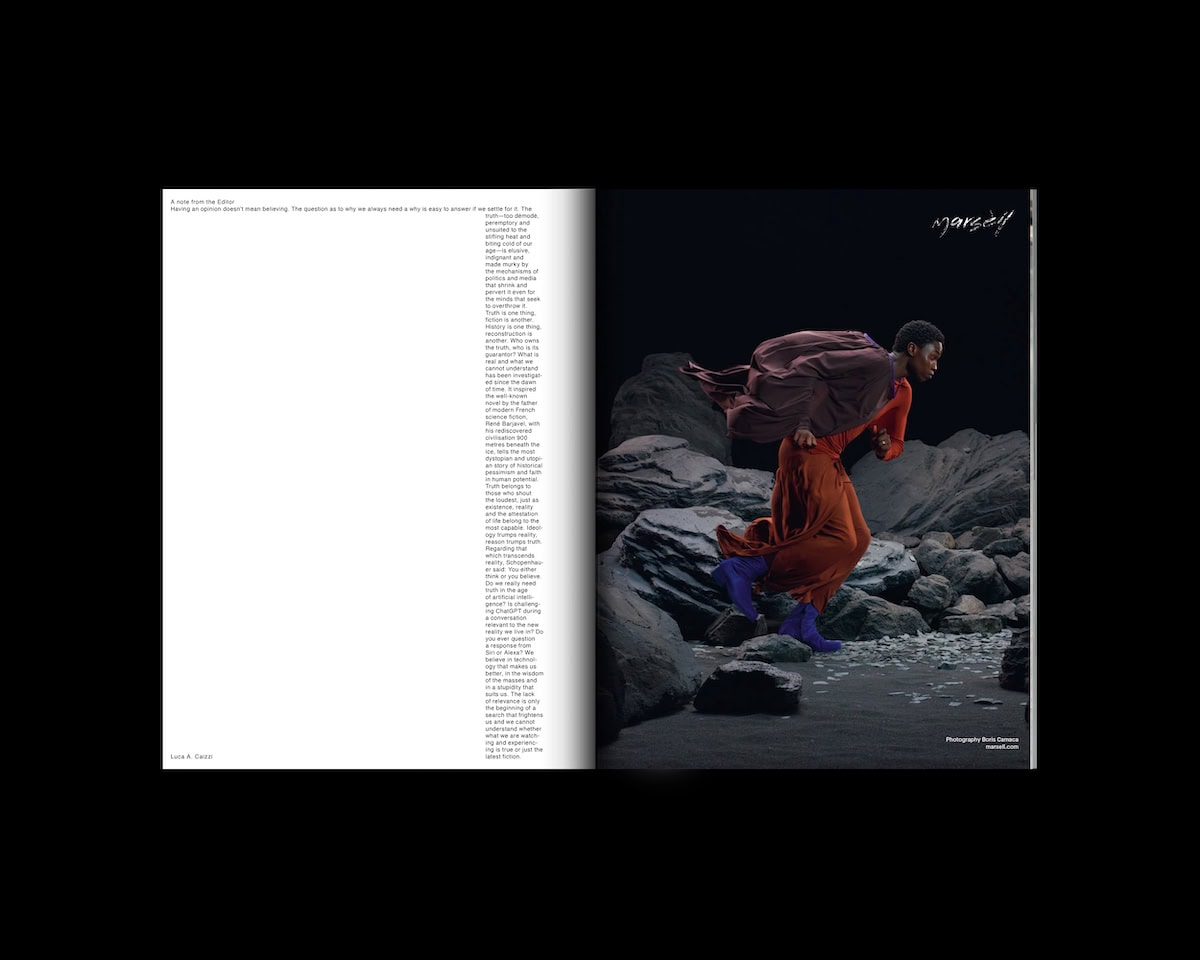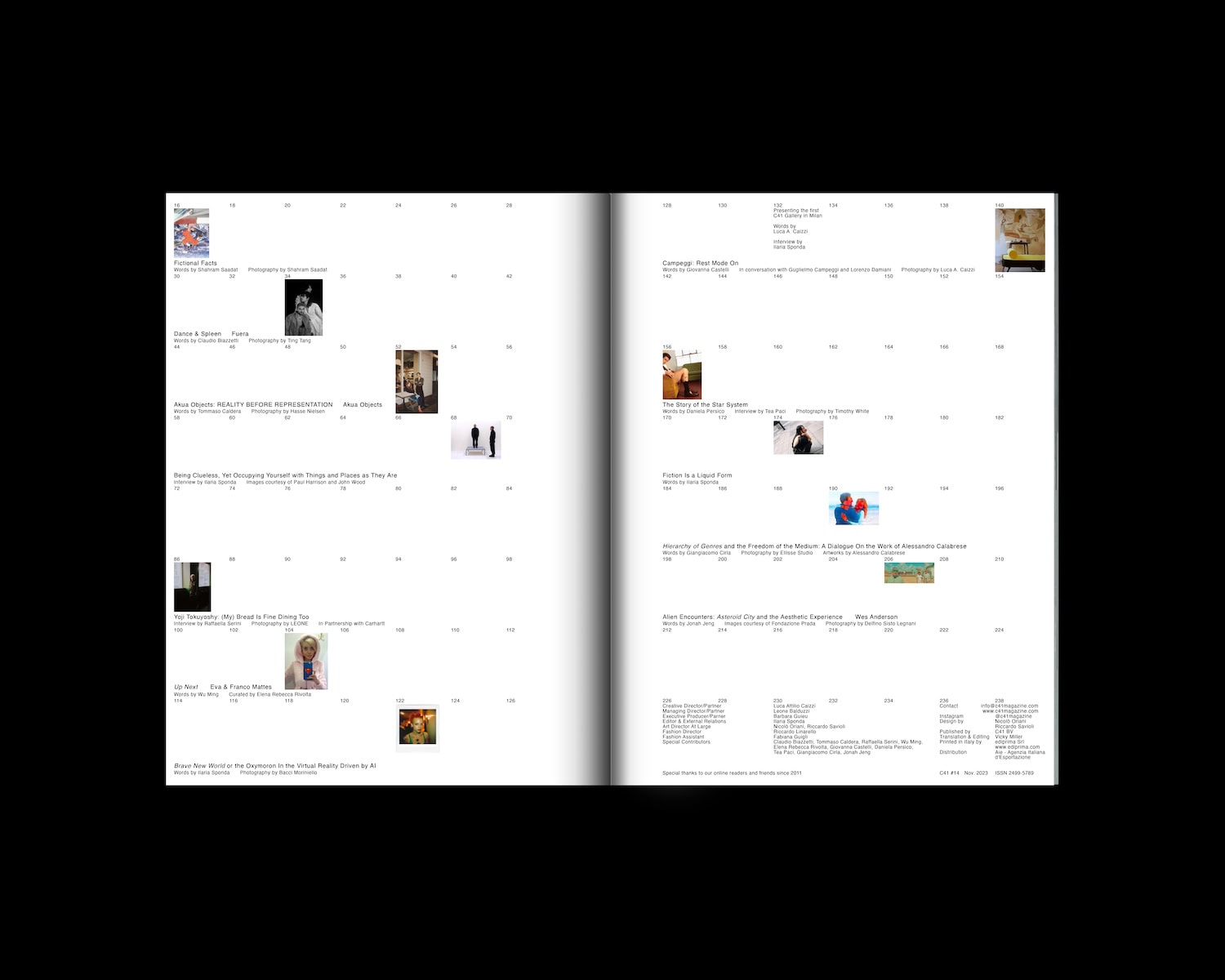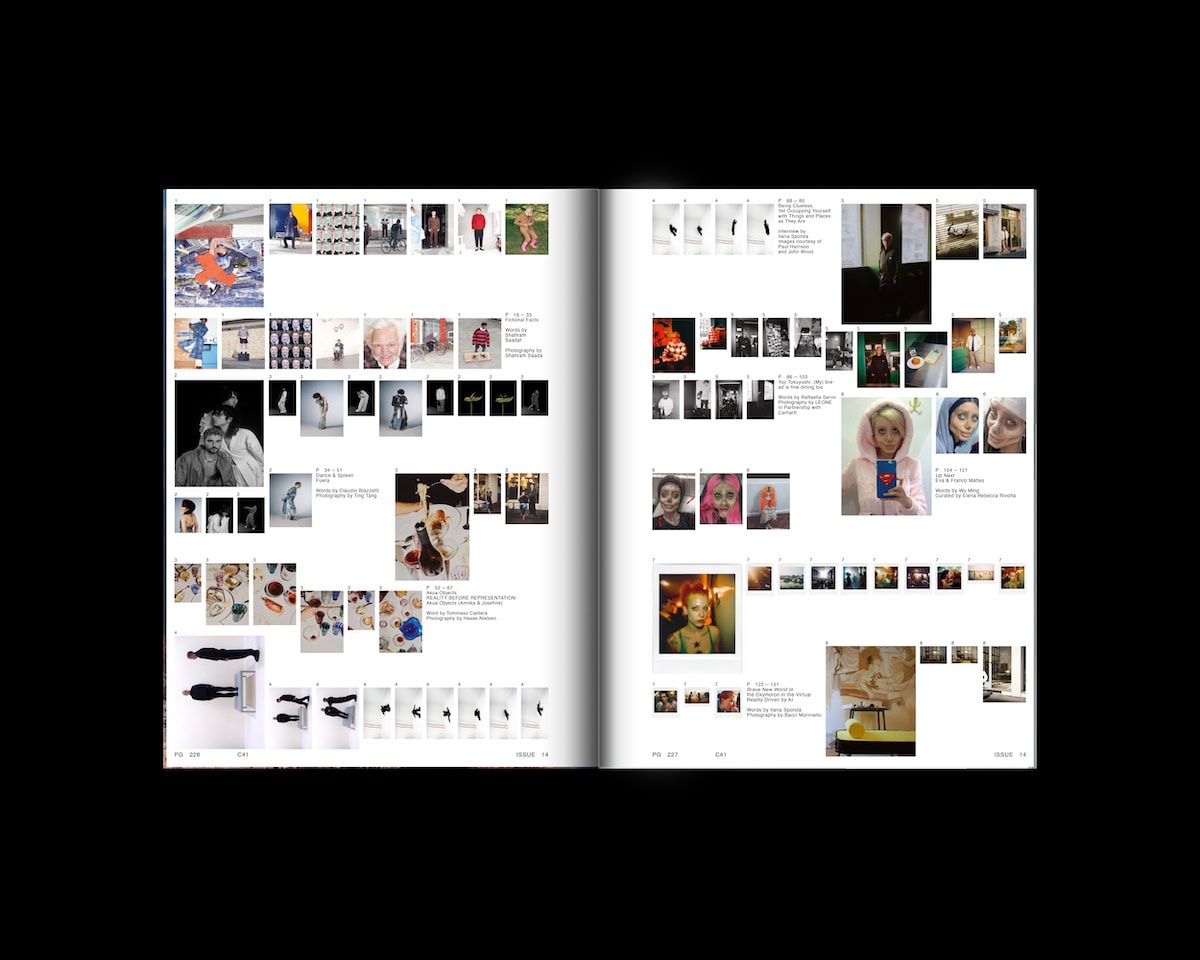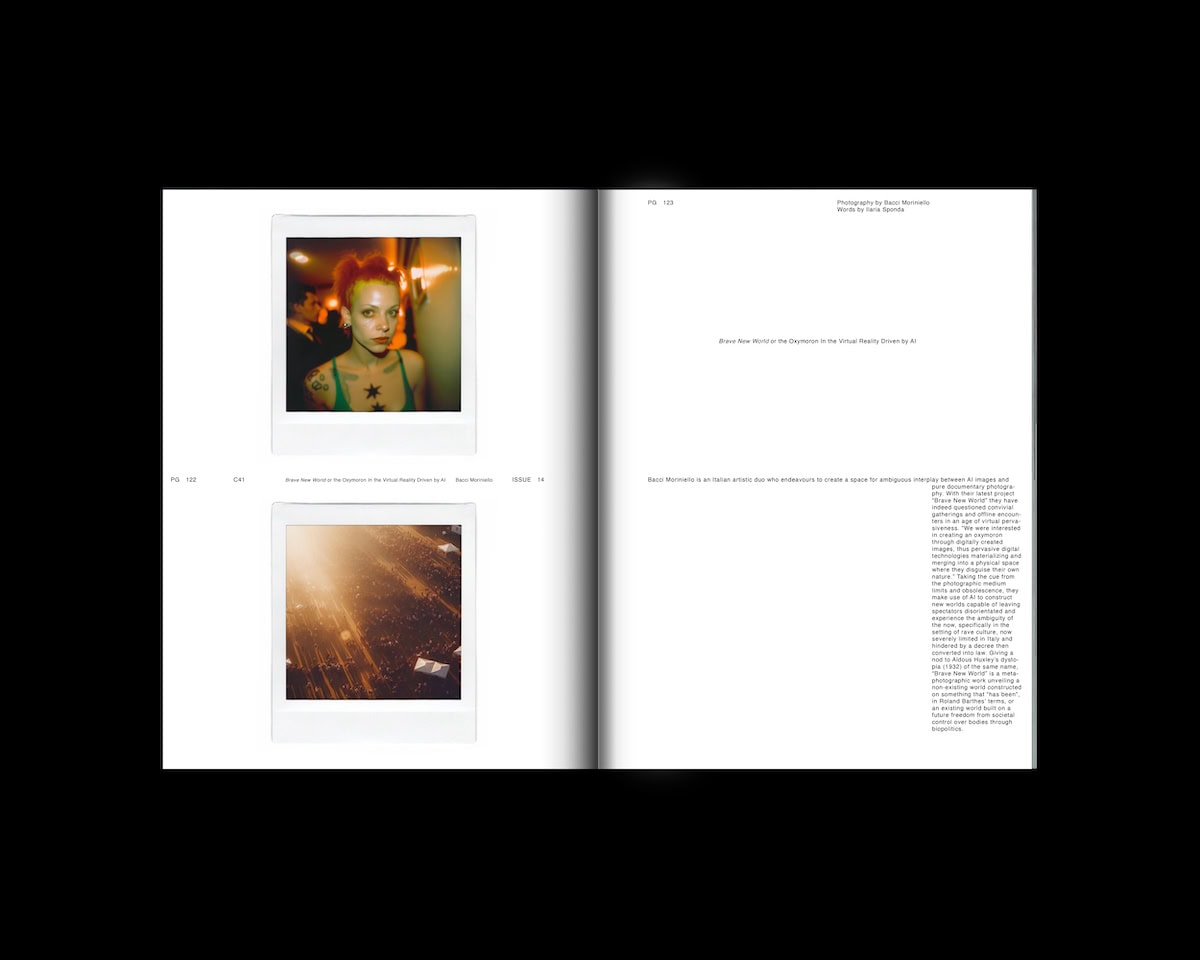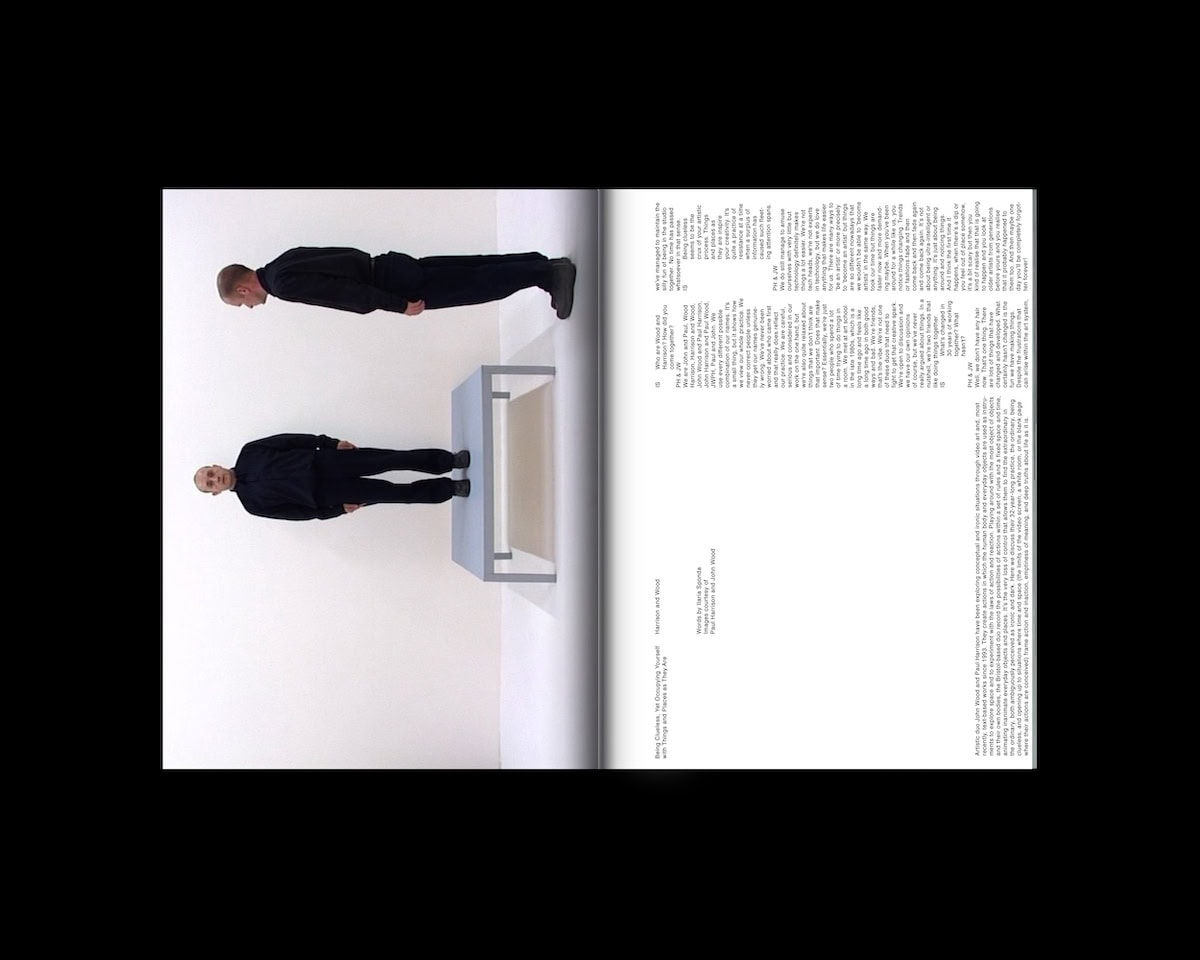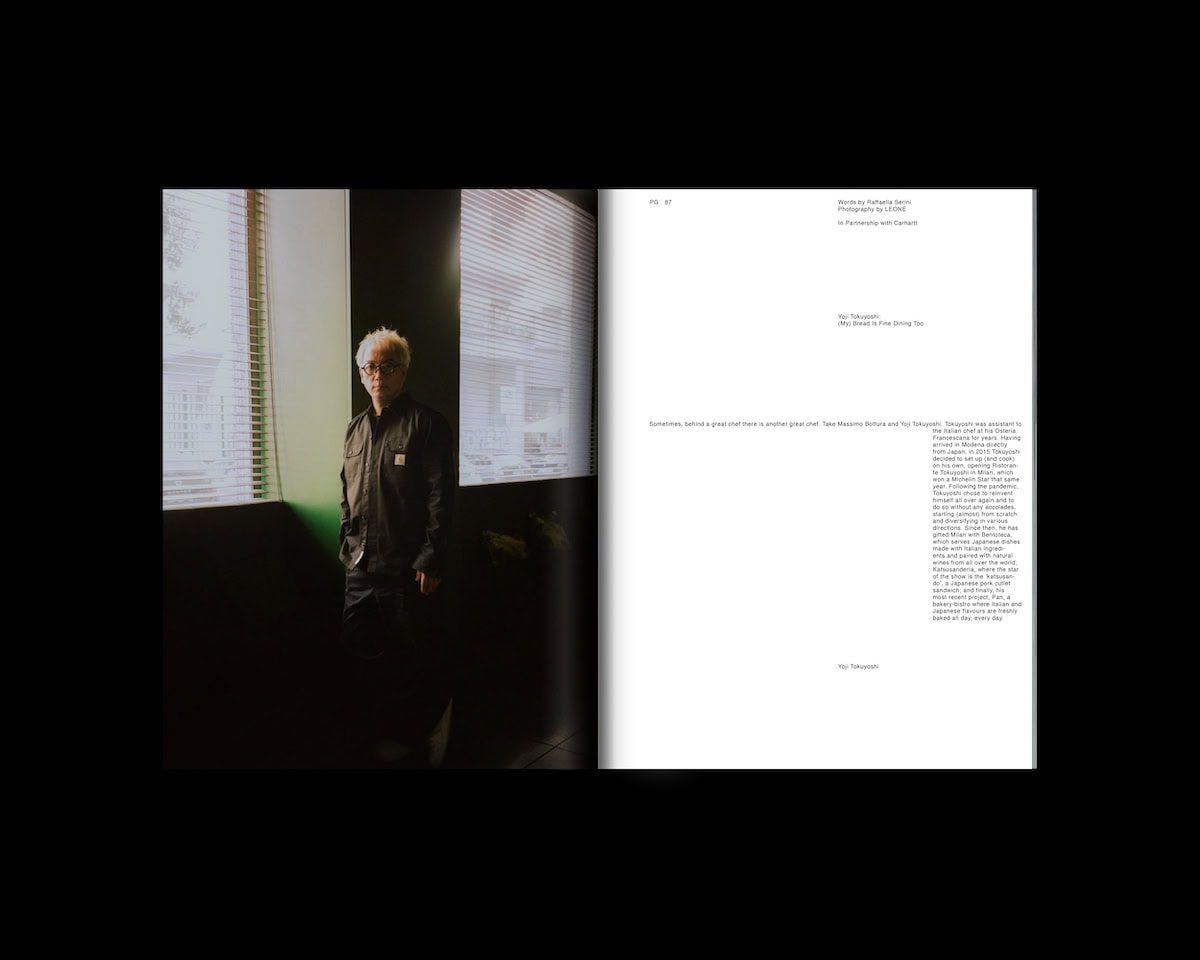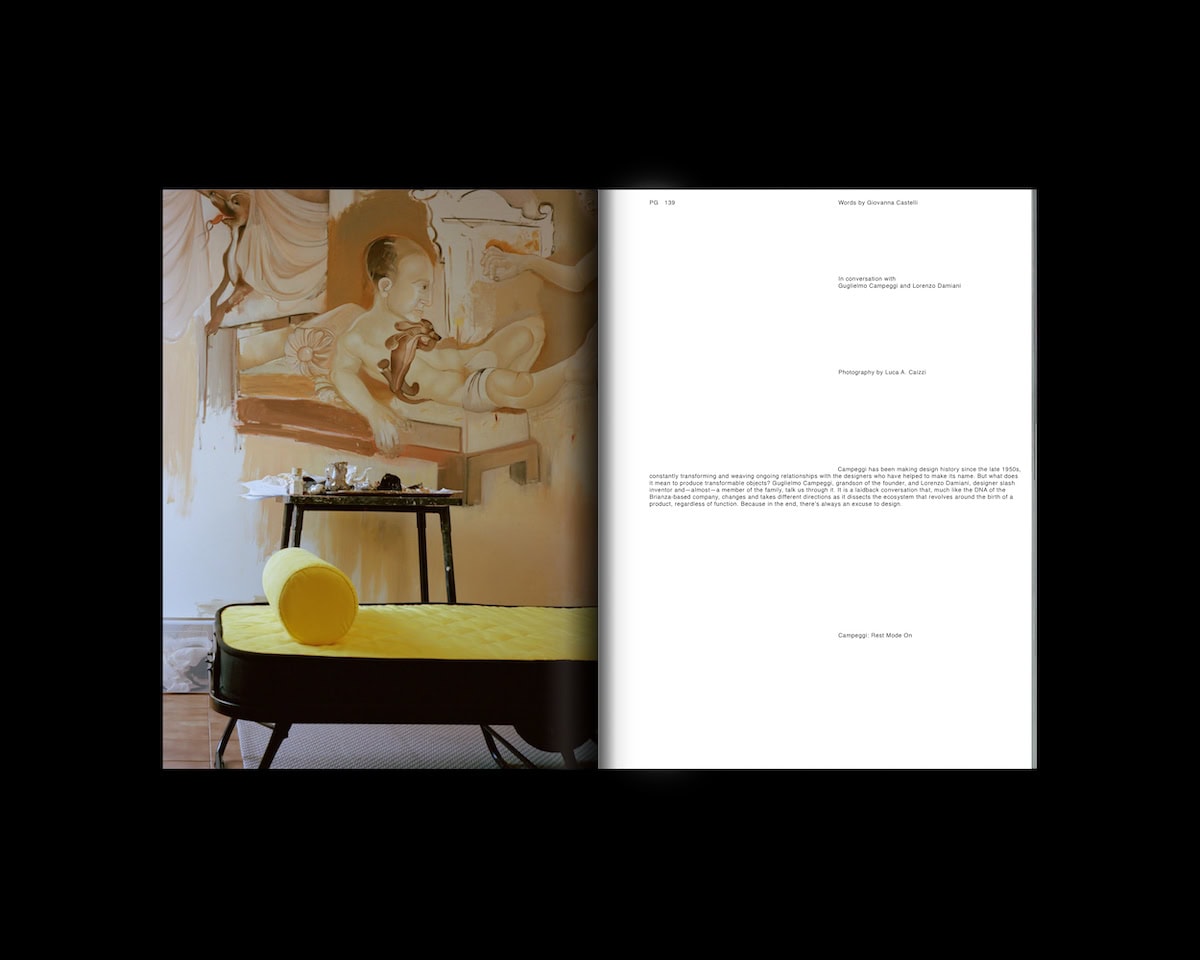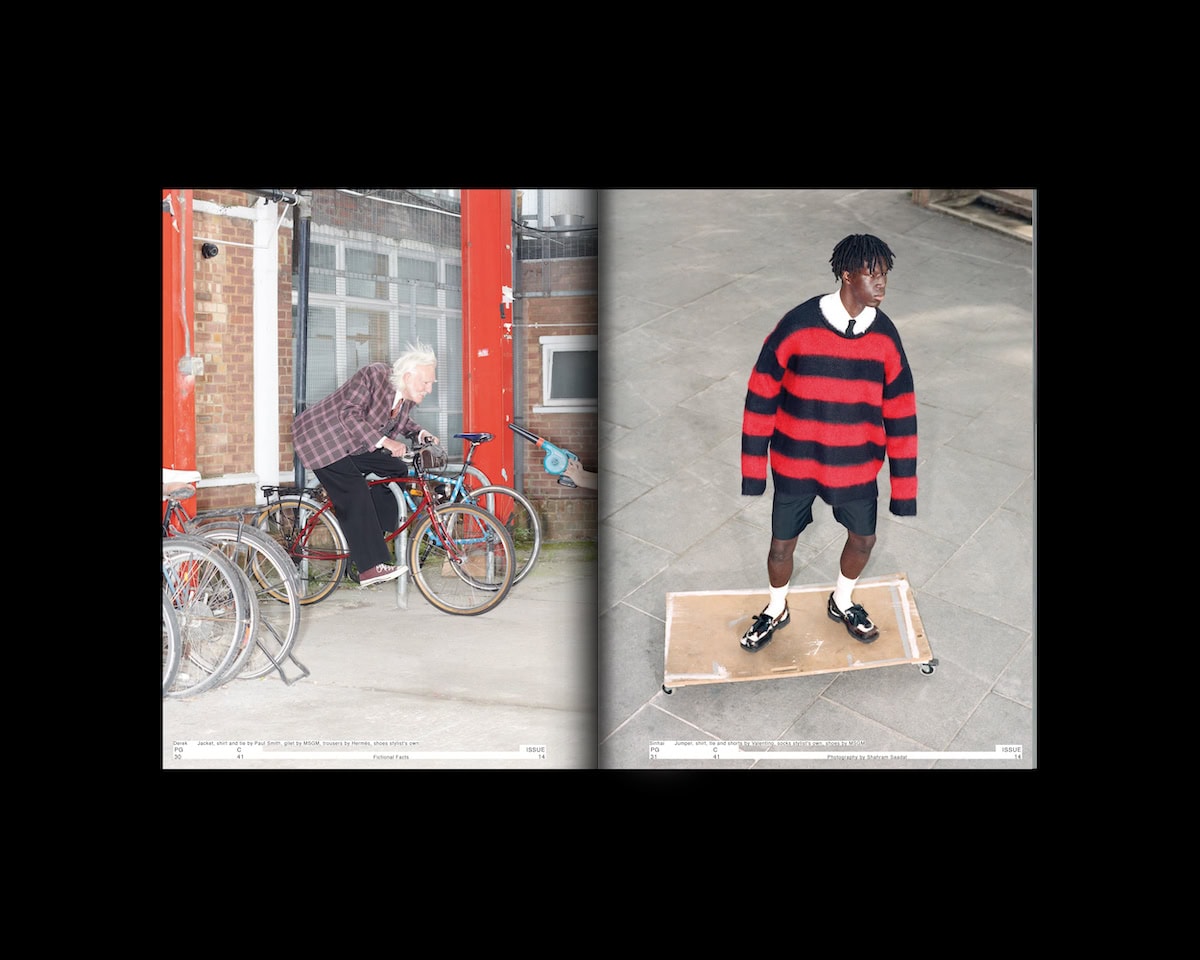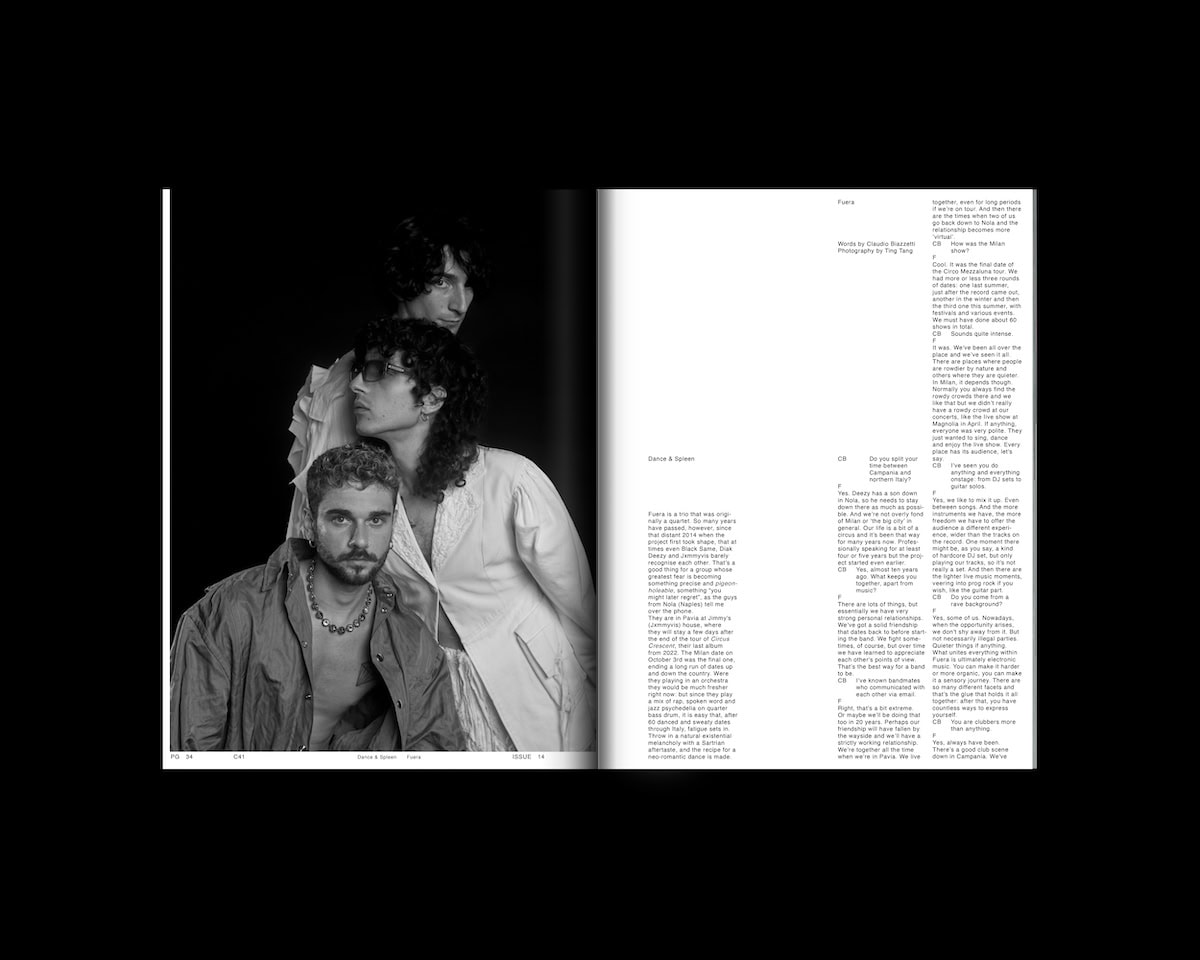Having an opinion doesn’t mean believing. The question as to why we always need a why is easy to answer if we settle for it. The truth—too démodé, peremptory and unsuited to the stifling heat and biting cold of our age—is elusive, indignant and made murky by the mechanisms of politics and media that shrink and pervert it even for the minds that seek to overthrow it. Truth is one thing, fiction is another. History is one thing, reconstruction is another. Who owns the truth, who is its guarantor? What is real and what we cannot understand has been investigated since the dawn of time. It inspired the well-known novel by the father of modern French science fiction, René Barjavel, with his rediscovered civilisation 900 metres beneath the ice, tells the most dystopian and utopian story of historical pessimism and faith in human potential. Truth belongs to those who shout the loudest, just as existence, reality and the attestation of life belong to the most capable. Ideology trumps reality, reason trumps truth. Regarding that which transcends reality, Schopenhauer said: You either think or you believe. Do we really need truth in the age of artificial intelligence? Is challenging ChatGPT during a conversation relevant to the new reality we live in? Do you ever question a response from Siri or Alexa? We believe in technology that makes us better, in the wisdom of the masses and in a stupidity that suits us. The lack of relevance is only the beginning of a search that frightens us and we cannot understand whether what we are watching and experiencing is true or just the latest fiction.
C41 14: The Editor’s Letter

Words by Luca A. Caizzi
Photography by Shahram Saadat
Styling by Riccardo Linarello
Featuring Sinhani Quade
Outfit by SUNNEI
Published on November 21, 2023
CREDITS
Words by Luca A. Caizzi
Cover Photography by Shahram Saadat, Timothy White and LEONE
Featured in this issue: Francoise Odill, Sasha Vanner, David Pedersen, Qi Han, Derek White, Sinhani Quade, Sophie Hambling, Simeï Iréne Snyman; Fuera; Annika Zobel Agerled, Josefine Gabriella Frank Arthur; Paul Harrison & John Wood; Yoji Tokuyoshi; Rory Gardiner; Bacci Moriniello; Eva & Franco Mattes; Rest Mode On: Campeggi; Timothy White; Anna & Silvia Cristofolini, Pascal Möhlmann, Miso Extra, Inés Maestre, Lawrie Abei, Nina G; Alessandro Calabrese; Asteroid City.
Contributors: Sinhani Quade, Leone Balduzzi, Claudio Biazzetti, Luca A. Caizzi, Tommaso Caldera, Ilaria Sponda, Wu Ming, Raffaella Serini, Elena Rebecca Rivolta, Giovanna Castelli, Daniela Persico, Tea Paci, Giangiacomo Cirla, and Jonah Jeng.
DETAILS
240 pages
Offset printed and perfect bound
Full color on coated biodegradable paper
Printed in Italy by Ediprima Srl
DATE OF PUBLICATION
Nov 15, 2023
COVER
Cover N. 1: Sinhani Quade (Photography by Shahrma Saadat, Styling by Riccardo Linarello, outfit by SUNNEI)
Cover N. 2: Nicolas Cage (Photography by Timothy White)
Cover N. 3: Yoji Tokuyoshi (Photography by LEONE, Styling by Yaya Zeng, outfit by Carhartt WIP)
REDESIGN
Nicolò Oriani and Riccardo Savioli
In collaboration with Carhartt WIP, Campeggi, Akua Objects, Fondazione Prada.
